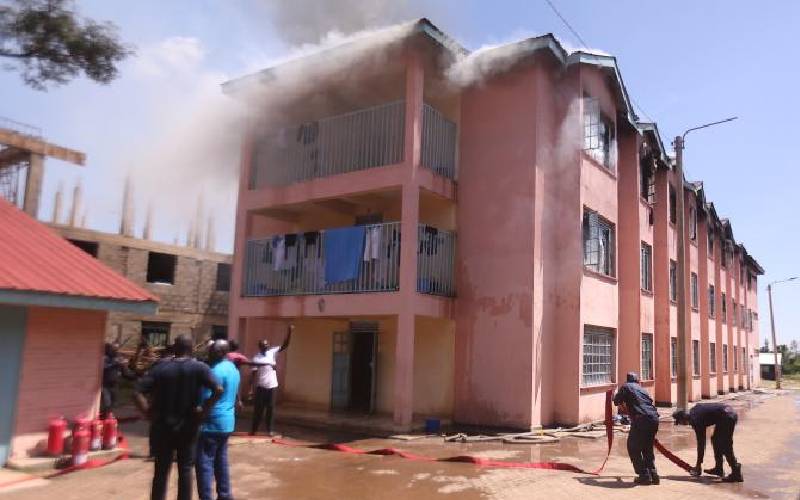×
The Standard e-Paper
Stay Informed, Even Offline

Firefighters put out fire at Maranda High school dormitory on December 5, 2021. [Collins Oduor, Standard]
Effects of a prolonged closure of schools in 2020 following the outbreak of Covid-19 spilled over to this year disrupting the learning calendar and fanning indiscipline among students.